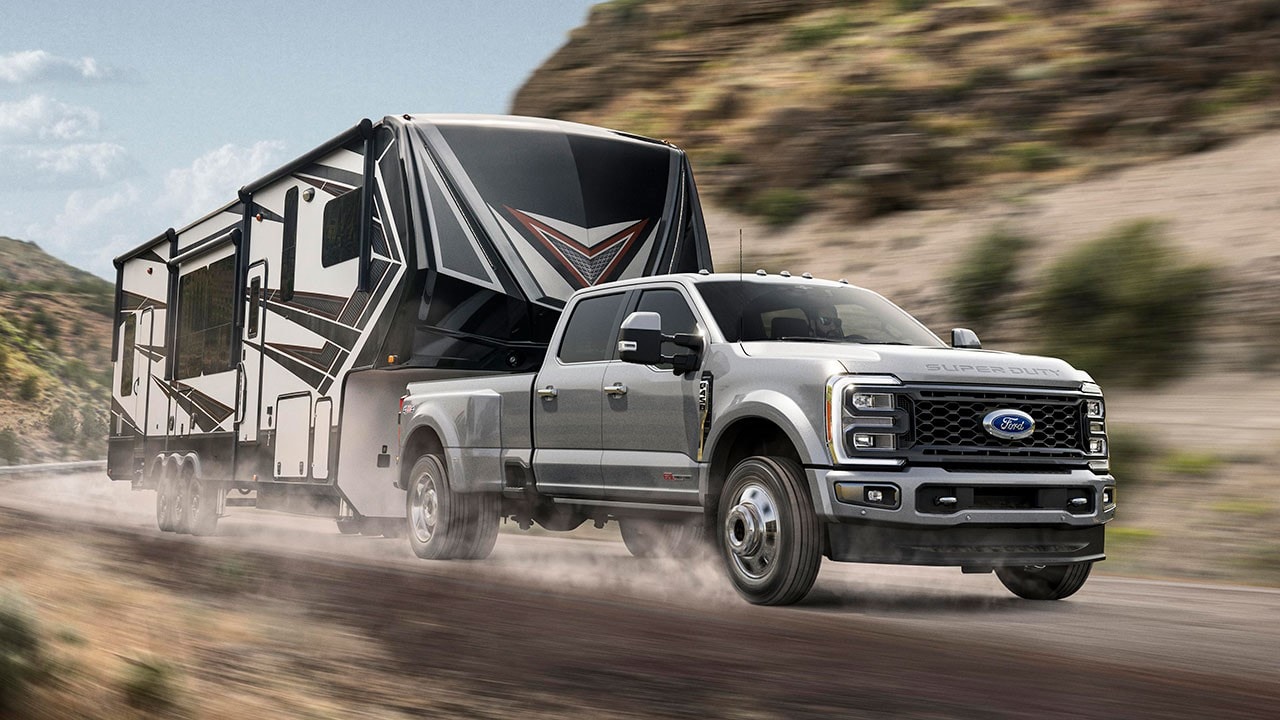
Diesel vs. Gas Engines: Which Ford Truck is Right for You?

Gas Engines: Versatile, Affordable, and Ready to Roll
For drivers who want strong performance without the higher upfront cost of diesel, Ford's gas engines offer an excellent balance of power, affordability, and everyday drivability.
Key Benefits of a Gas Engine:
-
Lower Initial Cost - Gas-powered trucks are generally more budget-friendly right off the lot.
-
Lower Maintenance Costs - Gas engines can be simpler and less expensive to maintain over time.
-
Quicker Warm-Up - Gas engines reach optimal operating temperatures faster, which is helpful in colder weather.
-
Everyday Performance - A gas engine is more than capable for light towing, commuting, and personal use.
If you're using your truck for a mix of personal driving and occasional hauling, a Ford gas-powered F-150 or Super Duty may be the right balance of strength and practicality.
Diesel Engines: Built for Power and Longevity
If your truck is a tool for serious work, a Ford Power Stroke® Diesel may be the right fit. Diesel engines are engineered for heavy-duty performance and endurance, making them the top choice for businesses and drivers who demand maximum capability.
Key Benefits of a Diesel Engine:
-
High Torque at Low RPMs - Perfect for towing, diesel engines deliver exceptional pulling power where you need it most.
-
Fuel Efficiency - Diesel engines are often more efficient for long hauls and highway driving, saving money at the pump over time.
-
Durability - Known for their longevity, Ford diesel engines are built to last even under demanding workloads.
-
Resale Value - Trucks equipped with diesel engines typically hold their value longer, making them a strong investment.
Consider Diesel If You:
Tow heavy loads regularly
Run a commercial business or fleet
Put high mileage on your truck each year
Plan to keep your truck for the long haul
Tow heavy loads regularly
Run a commercial business or fleet
Put high mileage on your truck each year
Plan to keep your truck for the long haul


Consider Gas If You:
Want a lower upfront investment
Tow or haul only occasionally
Use your truck for daily commuting and lighter jobs
Prefer lower maintenance costs
Want a lower upfront investment
Tow or haul only occasionally
Use your truck for daily commuting and lighter jobs
Prefer lower maintenance costs
Ford Powertrain Options You Can Count On
Whether you go with Ford's legendary Power Stroke® Diesel or one of Ford's powerful gas V8 engines, you're getting a truck designed with Built Ford Tough® engineering. From the F-150 to the Super Duty lineup, Ford gives you the strength, reliability, and capability to get the job done.
Talk to the Truck Experts at All-State Ford
Still debating between diesel and gas? Let's talk about it. Our specialists at All-State Ford in Louisville know trucks inside and out, and we'll take the time to understand your work, your driving habits, and your budget. From fleet solutions to personal trucks, we'll match you with the right Ford engine for your lifestyle.
Contact us today, explore our new Ford truck inventory, or stop by the dealership to test drive gas and diesel options side by side.
FAQ
Diesel engines are generally more fuel-efficient than gas engines, especially on the highway or during long-distance hauling. If you drive a lot of miles every year, you may see significant savings at the pump with a diesel.
The best way is to consider how you’ll use your truck:
-
Heavy towing, commercial use, long distances → Diesel
-
Everyday driving, lighter hauling, lower upfront cost → Gas